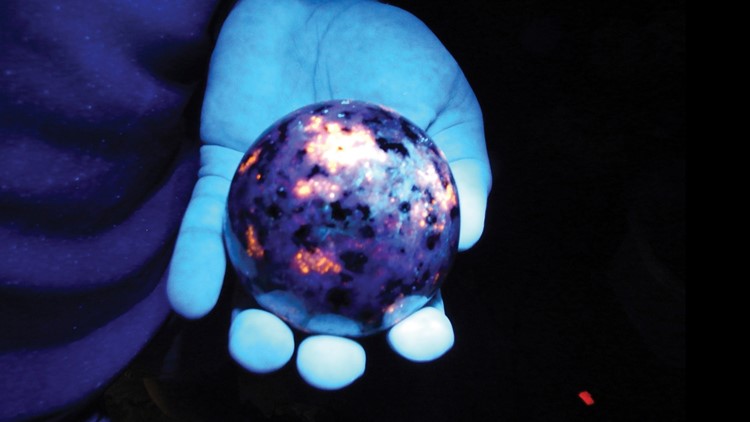BRIMLEY, Mich. (AP) — Two Michigan men are in conflict over recently discovered glowing rocks in the Upper Peninsula.
Erik Rintamaki is credited with finding the sodalite-rich syenite rocks in 2017 on a Lake Superior beach near Brimley. He chose to name the fluorescent rocks "Yooperlites."
Rintamaki trademarked the term and built a business around the rocks by leading rock-hunting tours with a UV light where he shows others how to spot them.
Though the Yooperlite name is now Rintamaki's intellectual property, self-described Upper Peninsula online personality Jason Asselin disagrees with his trademark, the Detroit Free Press reported.
"He spread the name of this rock as being a Yooperlite, then went ahead and trademarked the word," Asselin said. "He says no one may use the word in any fashion."
Both men said Rintamaki's attorney sent Asselin a cease-and-desist order for attempting to sell Yooperlites on e-commerce website Etsy without first getting Rintmaki's consent.
In a YouTube video posted June 21, Asselin asserted that the trademark is disrespectful to Yoopers, as residents of the Upper Peninsula are affectionately known.
But Rintamaki contends that trademarking the term was simply a business decision.
"If I did not trademark. I would've been sued for $360,000 for using a word that I invented," Rintamaki said. "The technical term for these stones is a syenite rich in fluorescent sodalite. Yooperlite is my brand of fluorescent sodalite from Michigan."
Anyone can apply for permission to sell the rocks under the Yooperlites name, Rintamaki added.
"If he wanted to use (the name) online he would have to become an authorized vendor, and there is a process for that," he said. "I am willing to work with anyone."
In protest, Asselin now seeks to rename these glowing rocks as Lake Shore Emberlites. He even created a now-defunct GoFundMe campaign to trademark the name.



